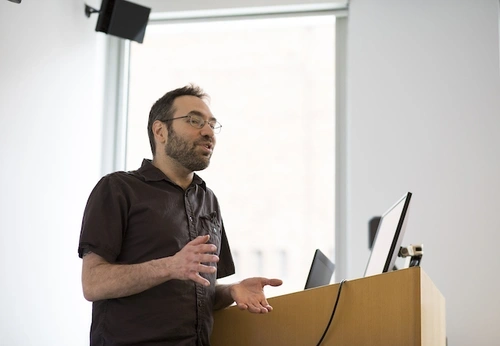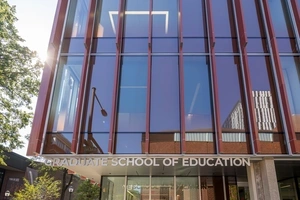Learning engineering — a blend of approaches that is examining what works in education — is a rising field and the potential areas for investigation are vast.
That’s why Ryan Baker, the Director of the Penn Center for Learning Analytics at Penn GSE, partnered with Ulrich Boser, the founder of The Learning Agency and a senior fellow at the Center for American Progress, to bring together leading practitioners and researchers to talk about the field’s most pressing issues. Their new report, High Leverage Opportunities for Learning Engineering, details the top 10 opportunities in learning engineering today.
“Learning engineering combines scientific knowledge and theory on learning… to develop and improve educational systems and methodologies to produce enduring, high-quality learning,” Baker and Boser explain. It is most frequently used in learning technologies.

The top 10 opportunities define areas where researchers (and funders) should focus their efforts. For example, Opportunity 5, Better Engineer Learning System Implementation in Schools, addresses the common phenomenon of learning systems succeeding on a small scale with “favorable conditions” (elements like supportive administration and involvement from developers in teacher professional development and support) but failing when their use is widely expanded where those conditions might not exist.
“Can we design learning technologies that are easier for teachers to incorporate into their practice, while maintaining the benefits and advantages of these technologies?” they ask. They point to mastery learning, where students advance at their own pace as they master topics, as one overall successful implementation, but explain that it’s important to understand why certain teachers override the system to move students who have not mastered a topic forward in order to continue to improve upon the existing design. And they note that in some cases, teachers may be improving on existing systems, so it’s important to bring all the feedback together.
In the Recommendation Table, they provide explicit ideas for where researchers, developers, and funders should invest time and resources:
- Improve integration of data between classroom practices, students’ learning experiences, and teacher professional development to study which practices around the use of learning technology are effective and scalable.
- Develop a taxonomy of teacher practices around the use of learning technology, and use it to study which practices and professional development is effective and scalable.
- Develop automated and semi-automated methods to encourage teachers to use the right practice at the right time.
The report is filled with important takeaways, “but perhaps the most important one is that we need better research and development infrastructure, to make it easier to build great learning systems, and better policy that facilitates making learning more effective and verifying that learning is fair and equitable,” says Baker.
To deep-dive into the full list of high-leverage opportunities in learning engineering, read the full report here.
Media Inquiries
Penn GSE Communications is here to help reporters connect with the education experts they need.








